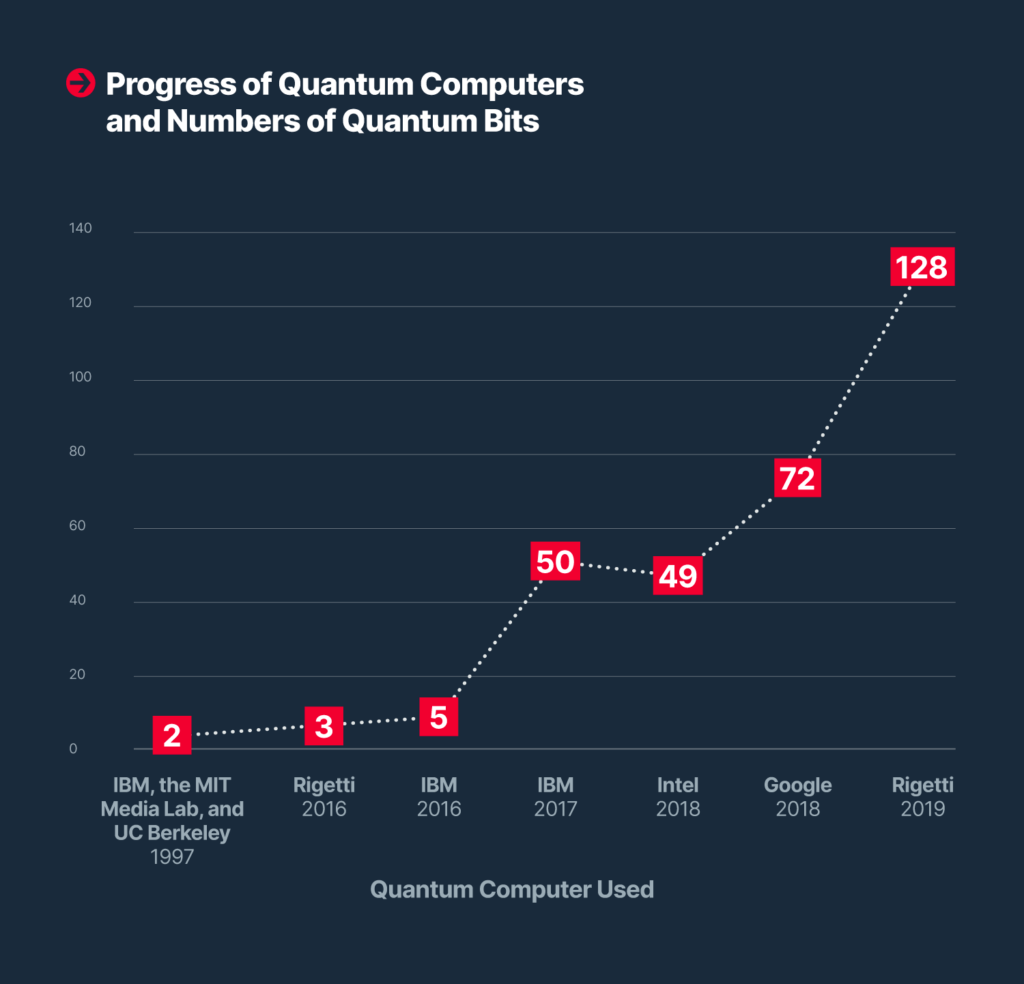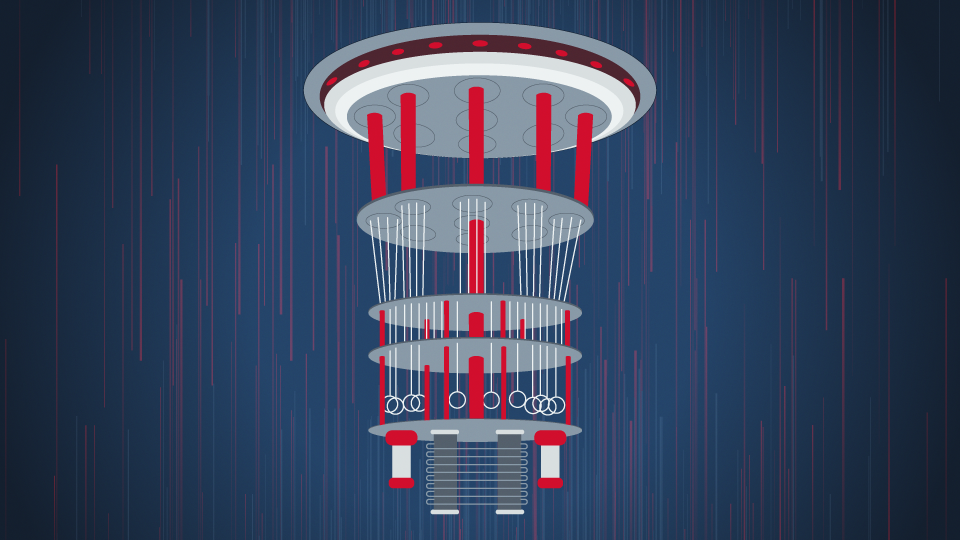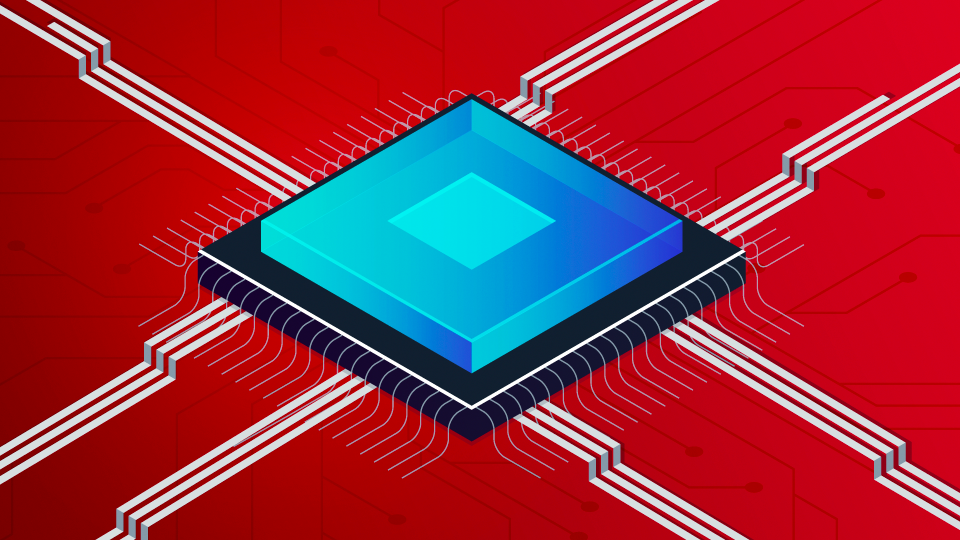SupraOracles 특별 보고서: 양자 컴퓨팅 및 블록체인
첫 번째 레벨 제목
Quantum Computing은 블록체인을 깨뜨릴 것인가, 아니면 더 안전하게 만들 것인가?
컴퓨팅의 미래와 관련하여 블록체인과 양자 컴퓨팅은 가장 흥미롭고 논란이 많은 두 가지 산업입니다. 블록체인은 개인과 기업 모두가 사용할 수 있는 암호 화폐 및 암호화 생성을 포함하여 실용적인 응용 프로그램에서 훨씬 더 발전했지만 양자 컴퓨팅 산업도 엄청난 속도로 성장하고 있습니다. 실제로 양자 컴퓨팅의 산업 성장률은 블록체인에 이어 두 번째일 수 있으며 산업은 2022년부터 2027년까지 매년 25%의 비율로 성장할 것으로 예상됩니다.
일부 전문가들은 양자 컴퓨팅의 발전이 블록체인 종말의 시작이 될 수 있다고 믿고 있습니다. 대안으로, 양자 컴퓨터는 어떤 면에서 미래 보장 데이터에 대한 보다 진보된 방법으로 블록체인을 대체할 수 있습니다.
그러나 양자 컴퓨팅과 블록체인 간의 관계는 적대적일 필요가 없으며, 일부 연구자들은 양자 컴퓨팅과 블록체인 기술이 결국에는 융합될 것이라고 믿고 있습니다. 이것은 궁극적으로 다양한 암호화 및 실제 문제를 해결하는 데 도움이 될 수 있는 더 안전하고 빠르며 잠재적으로 혁신적인 컴퓨팅 솔루션을 만들 수 있습니다.
목차
목차
양자 컴퓨팅이란 무엇이며 블록체인과 어떻게 다릅니까?
양자 컴퓨팅이 블록체인을 방해하고 암호화폐를 종식시킬까요?
양자 컴퓨팅이 미래의 블록체인과 통합되거나 향상될 수 있습니까?
양자 저항 원장이란 무엇입니까?
비트코인 포스트 퀀텀이란 무엇입니까?
양자컴퓨팅과 블록체인의 미래는?
양자 컴퓨팅이란 무엇이며 블록체인과 어떻게 다릅니까?
익숙하지 않은 사람들에게 양자 컴퓨팅은 "양자 상태"를 사용하여 놀라운 처리 능력이 필요하거나 일반 슈퍼 컴퓨터 문제로 해결하기 거의 불가능한 논리 문제를 해결하는 고유한 유형의 컴퓨팅입니다. 기존의 슈퍼컴퓨터처럼 일련의 질문을 하나씩 분석하는 대신 양자 컴퓨터는 많은 잠재적인 질문과 답변을 동시에 분석할 수 있습니다. 이 컴퓨터는 양자 물리학의 힘을 활용하여 놀라운 속도로 잠재적인 오답의 수를 최소화하는 동시에 놀라운 속도로 잠재적인 정답에 집중합니다.

종종 클래식 컴퓨터라고 하는 현재 컴퓨터는 1 또는 0이지만 둘 다는 아닌 비트로 구성됩니다. 양자 컴퓨터는 비트로 구성되지 않고 양자 중첩이라는 개념 덕분에 이러한 비트가 동시에 두 가지 상태로 존재할 수 있도록 하는 큐비트로 구성됩니다. 또한 기존 비트와 달리 큐비트는 양자 얽힘이라는 프로세스에서 서로 영향을 미쳐 전체 컴퓨팅 시스템에 대해 하나의 큰 양자 상태를 생성할 수 있습니다. 각각의 추가 큐비트는 컴퓨터의 잠재적 상태 수를 두 배로 늘리며 이러한 컴퓨터는 기존 컴퓨터에 비해 엄청난 계산 능력을 가지고 있습니다.
매우 복잡한 문제를 해결하는 것 외에도 양자 컴퓨팅은 암호화 세계를 변화시킬 놀라운 잠재력을 가지고 있습니다. 양자 물리학 및 양자 상태의 특성으로 인해 특정 정보의 상태는 실제로 관찰될 때 변경됩니다. 따라서 이론적으로 양자 암호화는 의도된 당사자가 아닌 다른 사람(또는 모든 기계)이 볼 경우 모든 정보의 상태가 돌이킬 수 없게 변경되기 때문에 진정으로 깨지지 않을 수 있습니다. 그러나 양자 컴퓨팅이 강력한 암호화를 생성할 수 있는 것처럼 이전에는 해독할 수 없었던 형태의 암호화를 깨뜨릴 가능성도 있어 블록체인의 전체 목적과 상충할 가능성이 있습니다.
IBM과 같은 회사는 현재 전기 자동차용 고에너지 밀도 배터리 개발, 탄소 배출량을 줄일 수 있는 신소재 개발, 우주의 기원을 밝힐 수 있는 입자 찾기 등 다양한 문제를 해결하기 위해 양자 컴퓨터를 사용하고 있습니다.
양자 컴퓨팅과 달리 블록체인은 암호화를 사용하여 노드라고 하는 일련의 분산 컴퓨터에 의해 일단 검증되면 효과적으로 변경할 수 없는 정보 원장을 생성하는 일련의 분산 원장 기술로 설명할 수 있습니다. 다양한 합의 메커니즘을 사용하여 노드의 분산 네트워크는 정보 블록을 "확인"하여 블록체인에 추가하는 데 동의하거나 동의하지 않습니다. 블록체인은 분명히 고전적인 컴퓨팅 영역에 속합니다. 즉, 블록체인은 특정 시점에 단일 상태에만 있게 됩니다.
업계에서 입증된 바와 같이 블록체인 기술은 디지털 통화, 물류 및 기록 보관 프로토콜, 다양한 금융 상품을 포함하여 자체 실행 스마트 계약을 통해 분산 애플리케이션을 생성하는 데 탁월한 도구입니다. 여기에는 대출, 스테이킹, 유동성 채굴, 심지어 분산 보험 프로토콜도 포함됩니다.
그러나 네트워크의 한계로 인해 블록체인은 높은 수준의 컴퓨팅 문제 해결 능력이 필요한 문제를 해결하는 데 반드시 좋은 것은 아닙니다. 실제로 느린 트랜잭션 속도는 오늘날 블록체인의 가장 큰 문제 중 하나이며, 최신 블록체인은 더 높은 TPS(초당 트랜잭션)로 실행할 수 있는 솔루션을 제공하기 위해 경쟁하고 있습니다. 대조적으로 양자 컴퓨팅은 과학과 기술에 존재하는 크고 다루기 힘든 문제 중 일부를 해결할 수 있는 큰 잠재력을 가지고 있지만 일반 사람들이 사용하는 소비자 응용 프로그램을 만드는 데 반드시 좋은 도구는 아닙니다.
따라서 양자 컴퓨팅은 두 가지 매우 다른 기술이라고 말하는 것이 안전하지만 양자의 상호 작용은 두 산업을 영원히 바꿀 수 있습니다.
양자 컴퓨팅이 블록체인을 방해하고 암호화폐를 종식시킬까요?
양자 컴퓨팅 및 블록체인과 관련하여 주요 관심사는 양자 컴퓨터가 블록체인 암호화를 압도하여 우리가 알고 있는 안전한 암호화폐의 종말로 이어질 수 있다는 것입니다. 양자암호가 블록체인 암호를 압도할 수 있다면 전체 암호화폐 산업이 무너지지 않더라도 대규모 암호화폐 절도와 대대적인 혼란으로 이어질 수 있다.
Deloitte의 연구에 따르면 공격은 모든 비트코인의 25%를 훔칠 수 있습니다. 이는 2022년 1월까지 약 3000억 달러에 이를 것이며 암호화폐 시장의 규모가 계속해서 극적으로 성장함에 따라 양자 컴퓨터 기반 암호화 해커는 결국 수조 달러를 훔쳐 잠재적으로 세계 경제를 혼란에 빠뜨리고 그 과정에서 전체 블록체인.
특히 쇼어 함수(Shor's function)라고 불리는 잘 알려진 이론적 컴퓨터 알고리즘을 양자 컴퓨터로 구현하면 현재 타원 곡선 곱셈에 가려져 있는 소인수를 이론적으로 해결할 수 있습니다. 이것은 해싱에 사용되는 곱셈의 한 형태이며 (현재) 역전(즉, 개인 키를 형성하기 위해 함께 곱해진 원래 숫자를 발견)하는 것은 거의 불가능합니다.
예를 들어 연구원들은 기존 컴퓨터에서 타원 곡선 곱셈을 사용하여 공개 키와 연결된 개인 키를 결정하기 위해 340,282,366,920,938,463,463,374,607,431,768,211,456개의 기본 작업이 필요하다고 계산했습니다. 이론적으로 이것은 수천 년이 걸릴 수 있습니다.

대조적으로, Shor의 기능을 사용하는 양자 컴퓨터는 동일한 계산을 기반으로 공개 키와 연결된 개인 키를 결정하기 위해 2,097,152개의 기본 작업만 필요합니다. 대조적으로 이것은 몇 시간 밖에 걸리지 않을 수 있습니다. 그러나 Shor의 기능을 활용하는 능력은 주류 양자 컴퓨터에서 아직 개발되지 않았으며 이 능력이 언제 완전히 개발될지는 불분명하다는 점을 인식하는 것이 중요합니다.
블록체인 암호화를 깨는 것 외에도 또 다른 우려는 양자 컴퓨터가 암호화폐 채굴을 위해 기존 컴퓨터를 대체할 수 있다는 것입니다. 이론대로라면 이 컴퓨터가 ASIC과 같은 기존 채굴 장비보다 더 빠르게 채굴할 수 있다면 자산 가격 불안정, 51% 공격 및 채굴 권한의 극단적인 중앙 집중화로 이어질 수 있습니다. 그러나 이것은 주로 비트코인과 같은 작업 증명 블록체인에 대한 문제이며 일반적으로 지분 증명 기반 합의 모델에는 영향을 미치지 않는다는 점에 유의해야 합니다. 환경 문제 및 기타 요인으로 인해 Ethereum과 같은 대부분의 작업 증명 블록체인은 계산 집약적인 마이닝을 포함하지 않는 지분 증명 및 기타 합의 모델로 이동하고 있습니다.
이러한 계산과 추정에도 불구하고 모든 전문가가 양자 컴퓨팅이 효과적으로 블록체인을 해독하고 기존 암호화를 쓸모없게 만들 수 있을 것이라고 확신하는 것은 아닙니다. 예를 들어 일부 사람들은 Bitcoin에서 사용되는 SHA-256 암호화가 양자 내성일 수 있다고 생각합니다. 양자 컴퓨터가 현재의 블록체인 암호화 방법을 깨뜨릴 수 있더라도 10~20년이 걸릴 수 있으므로 블록체인 암호 작성자는 새롭고 강력한 암호화 방법을 개발할 수 있습니다.
또한 타원 곡선 암호화에 대한 가장 일반적인 대안인 RSA 암호화도 다소 양자 내성이 있을 수 있습니다. 타원 곡선 암호화는 기존의 복호화와 관련하여 RSA 암호화보다 더 안전한 것으로 간주되지만 전문가들은 양자 복호화의 경우 그 반대일 수 있다고 제안합니다. 또한 RSA가 결국 "양자 해킹 가능"이 되더라도 소프트 포크와 지속적으로 변경되는 지갑 주소는 양자 컴퓨터가 블록체인을 방해하거나 암호 화폐를 훔치는 실질적인 능력을 상당 부분 완화할 수 있습니다.
양자 컴퓨팅이 미래의 블록체인과 통합되거나 향상될 수 있습니까?
어떤 사람들은 양자 컴퓨팅이 우리가 알고 있는 블록체인과 암호 화폐를 방해할 수 있다고 믿는 반면, 다른 사람들은 양자 암호화가 블록체인과 결합되어 오늘날의 프로토콜보다 더 안전한 블록체인을 만들 수 있다고 믿습니다. 이론적으로 이러한 블록체인은 기존 해킹 및 양자 컴퓨터 공격에 매우 강합니다.
특히 전문가들은 앞서 언급한 타원 곡선 곱셈을 활용한 비대칭 키 알고리즘 및 해시 함수와 같은 기존 블록체인 암호화 방법이 양자 키로 대체될 수 있다고 보고 있습니다.
QKD(양자 키 배포)라고도 하는 양자 키 암호화는 광 링크를 통해 광자 형태의 빛의 "양자 입자"를 전송하여 작동합니다. 앞서 언급했듯이 도청자가 전송되는 광자를 보려고 시도하면 사실상 거래의 유효성이 무효화됩니다.
실제로 이러한 양자 키는 한 번만 사용할 수 있는 키를 생성하는 일회용 암호(OTP) 암호화와 함께 사용해야 합니다.
양자 컴퓨팅은 Journal of Quantum Computing Applications in future blockchains에서 "Quantum Blockchain: A Decentralized, Encrypted, and Distributed Database Based on Quantum Mechanics"라는 흥미로운 논문에 자세히 나와 있습니다. 기타 이점, 특히 노드 선택의 무작위화는 현재 블록체인의 주요 문제입니다. 현재의 무작위화 방법을 사용하는 대신 양자 블록체인 프로토콜은 양자 난수 생성기를 활용하여 무작위로 선택된 유효성 검사기 노드를 선택할 수 있습니다.

이 논문은 또한 양자 블록체인이 고전적인 비잔틴 합의 프로토콜을 양자 암호화를 사용하는 새로운 유형의 양자 비잔틴 합의 프로토콜로 대체할 수 있는 잠재력을 가지고 있다고 주장합니다. 이 시점에서 매우 이론적이지만 이것은 51% 공격을 방지하고 양자 암호화를 기반으로 하는 새롭고 매우 안전한 암호 화폐를 만드는 데 도움이 될 수 있습니다.
위의 많은 부분이 새로운 양자 블록체인의 생성을 의미하지만 양자 기술을 기존 블록체인에 적용하여 탈중앙화를 높이고 비트코인, 이더리움, 솔라나와 같은 주요 블록체인의 복잡성을 줄일 수도 있습니다. 거래 시간.
모호하고 참조 문서에서 다루지 않은 근본적인 문제는 양자 키 생성을 포함한 양자 컴퓨팅 기능이 노드 운영자를 통해 배포되는 방식입니다. 현재 대부분의 양자 컴퓨터는 매우 실험적이며 매우 비쌉니다. 즉, 진정으로 분산된 블록체인에 필요한 많은 수의 노드 운영자를 구현하기 어렵습니다. 중국의 한 회사는 현재 완전한 이더리움 노드를 운영하는 데 드는 비용보다 훨씬 적은 5,000달러에 불과한 작은 양자 컴퓨터를 공개했습니다.
양자 저항 원장이란 무엇입니까?
지금까지 완전한 양자 저항성을 주장하는 퍼블릭 블록체인 프로젝트는 Quantum-Resistant Ledger와 Bitcoin Post-Quantum뿐입니다. QRL(Quantum Resistant Ledger)은 스스로를 "상태 저장 서명 체계와 비교할 수 없는 보안을 갖춘 포스트 퀀텀 보안 블록체인"이라고 주장합니다.
이를 위해 QRL 프로토콜은 "최소한의 보안 가정을 가진 해시 기반 순방향 보안 서명 체계인 IETF 지정 XMSS"를 사용합니다. 이들은 각 노드가 데이터 블록의 암호화 해시로 태그가 지정된 트리입니다.
머클 트리는 "기존 블록체인 네트워크의 단일 블록에 있는 모든 트랜잭션의 모든 해시에 대한 완전한 해시"로 정의할 수 있습니다.
Merkle 서명과 같은 상태 기반 해시 서명 체계는 RSA 또는 타원 곡선 암호화보다 양자 해킹에 더 강한 것으로 간주됩니다. 그러나 XMSS와 같은 해시 상태 기반 서명 체계는 키가 여러 번 사용되는 경우 취약할 수 있으므로 다른 형태의 암호화에 비해 불리합니다.
현재 NIST(National Institute of Information Technology) 컴퓨터 보안 리소스 센터는 민간 및 정부에서 사용할 수 있는 잠재적인 강점과 약점을 평가하기 위해 이러한 암호화 기술에 대한 연구 및 검토를 적극적으로 요청하고 있습니다. XMSS 외에도 NIST는 현재 "포스트 양자 암호화"를 위한 거의 70가지의 새로운 방법을 평가하고 있습니다.
Quantum Resistant Ledger는 "확장된" Merkle 서명 체계가 기존의 Merkle 서명 체계보다 더 효율적이고 안전하다고 주장하지만 실제로 효율적인 양자 컴퓨터 없이는 이를 증명하기 어렵습니다.
이 그룹은 독점 블록체인을 개발하는 것 외에도 2022년 1월 현재 가격이 0.20달러 미만이고 총 시가총액이 1,400만 달러가 조금 넘는 자체 암호화폐(QRL)를 발행했습니다. 기반 블록체인과 마찬가지로 QRL의 제작자는 암호화폐 자체가 양자 해킹에 완전히 면역인 최초의 통화라고 주장합니다. 다른 암호 화폐와 마찬가지로 QRL은 단일 노드에서 또는 참여하는 마이닝 풀의 일부로 마이닝할 수 있습니다.
비트코인 포스트 퀀텀이란 무엇입니까?
다소 인기 있는 QRL 프로젝트 외에도 또 다른 블록체인 프로젝트인 비트코인 포스트 퀀텀(Bitcoin Post-Quantum)도 양자 컴퓨팅 공격으로부터 자신을 보호하기 위해 해시 상태 기반 XMSS(Extended Merkle Signature Scheme)를 사용한다고 주장합니다. 특히 BPQ는 기존의 암호화 기술 대신 양자 안전 디지털 서명을 사용하는 비트코인 주요 블록체인의 실험적 포크입니다. BPQ가 수행한 연구는 향후 비트코인 메인넷에 양자 저항 암호화를 도입하기 위한 기반을 형성할 수 있습니다.
QRL과 달리 BPQ는 현재 연구 단계에 가깝고 계획된 통화인 BitcoinPQ는 현재 채굴되지 않습니다.
양자컴퓨팅과 블록체인의 미래는?
양자 컴퓨팅 및 블록체인의 미래는 극도로 불확실하며 컴퓨터 과학의 미래를 정의하는 요소 중 하나일 수 있습니다. 블록체인은 인터넷 민주화를 도왔고, 암호화폐를 만들었으며, 비트코인 및 이더리움과 같은 대중적인 블록체인의 형태로 세계 최대의 분산 컴퓨터 네트워크를 탄생시켰습니다.
대조적으로, 아직 초기 단계에 있는 양자 컴퓨팅은 우리 시대의 가장 영향력 있는 과학 및 기술 문제를 해결하는 데 도움이 될 잠재력을 가지고 있으며, 우리가 예측할 수 없었던 방식으로 기술을 발전시킵니다. 양자 컴퓨팅과 블록체인이 충돌하면 대재앙이 될 수 있습니다. 그러나 암호화가 계속 진화하여 점점 더 많은 양자 저항 암호화 방법을 만들거나 양자 암호화 자체가 블록체인에 통합된다면 이러한 유망한 기술의 조합은 더 안전하고 민주화된 인터넷을 만드는 데 도움이 될 것이며 더 많은 가능성이 있습니다. 세상에 긍정적인 영향을 미칩니다.
(2022) Forecast size of the quantum computing market worldwide in 2020 and 2027.
What is quantum computing?.
Quantum computing will break the blockchain and QKD will save it. Quantum Xchange
Chaum, D. (2021, Nov.) Without quantum security, our blockchain future is uncertain.
(2018, Jun.) Elliptic-Curve Cryptography.
What is Quantum Cryptography (or Quantum Key Distribution)?. ID Quantique.
Li, C. Xu, Y. Tang, J. Liu, W. (2019) Quantum Blockchain: A Decentralized, Encrypted and Distributed Database Based on Quantum Mechanics. Journal of Quantum Computing
Tangermann, V. (2021, Feb.) This Quantum Desktop Computer Can Be Yours for $5000. The Byte.
Quantum Resistant Ledger: The future of post-quantum resistant blockchains. The QRL Foundation.
Huang, R. (2020, Dec.) Here’s Why Quantum Computing Will Not Break Cryptocurrencies.
(2022, Jan.) Quantum Resistant Ledger.
(2019, Feb.) Request for Public Comments on Stateful Hash-Based Signatures (HBS). NIST: Information Technology Laboratory: Computer Security Resource Center.



